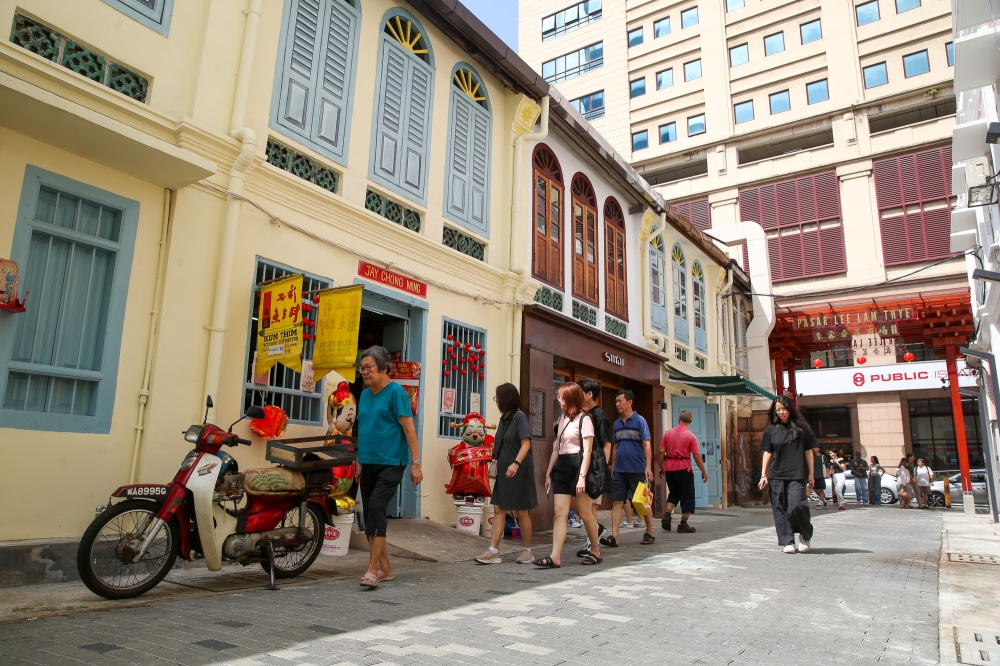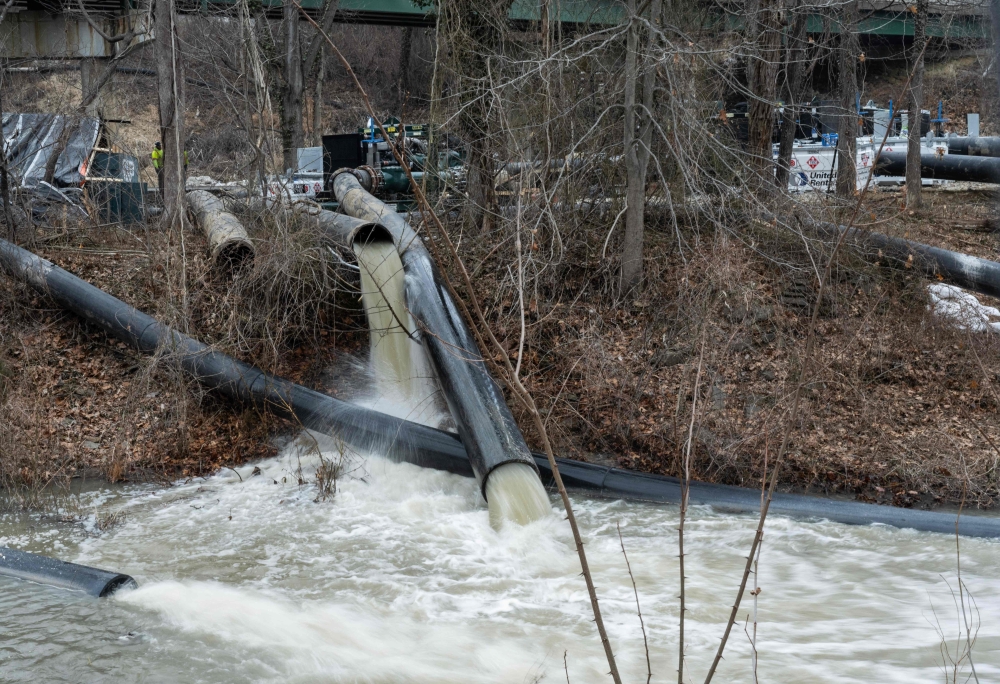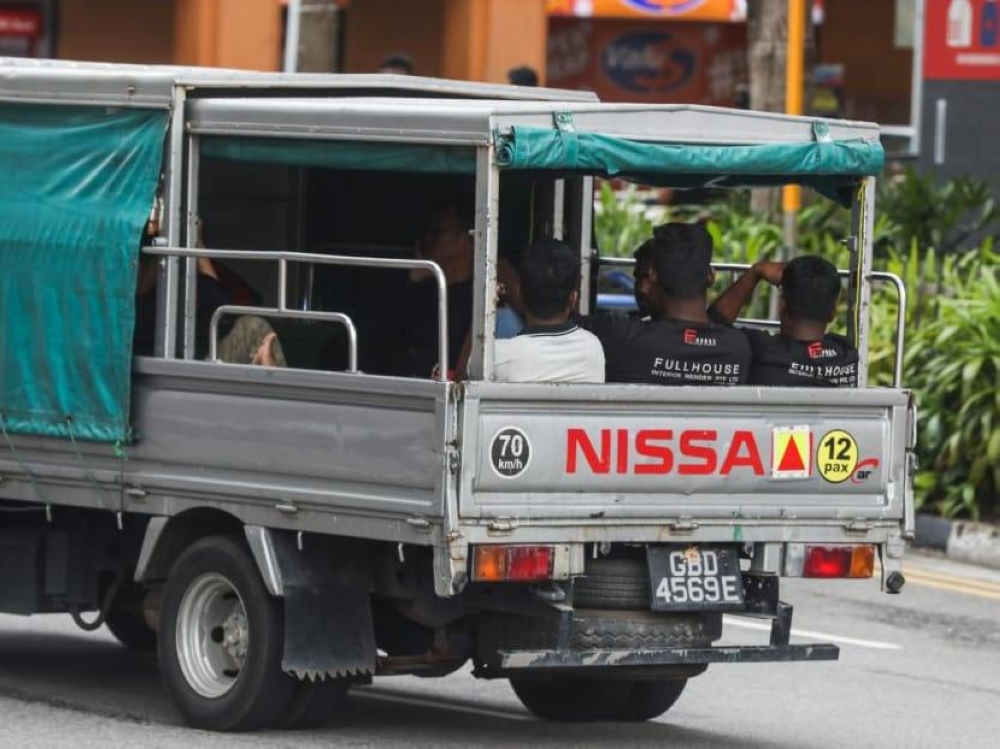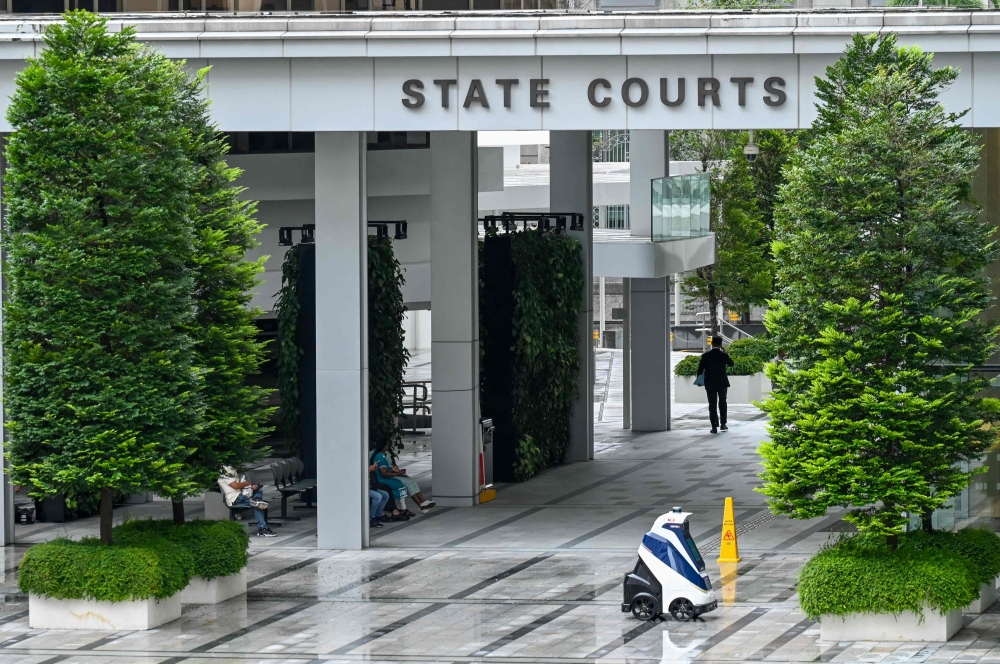SINGAPORE, Oct 25 — While new measures to make ferrying of migrant workers safer on lorries are welcomed, some of them feel that using lorries as a mode of transport for long distances is inherently dangerous.
They also raised questions about how the new measures will be enforced by the authorities and carried out by their employers.
On Wednesday (October 19), the Land Transport Authority, Ministry of Manpower and Traffic Police announced measures that will kick in next January.
They are:
• Granting onsite workers who double as drivers a mandatory rest period of at least half an hour before they can transport other workers in the rear deck of lorries
• Pairing such workers with a buddy, whose duty will be to ensure the driver is alert and fit to drive
• Requiring companies to install rain covers on lorries, though this will be done in phases
TODAY on Friday spoke to migrant worker rights groups, who welcomed the measures but said that these do not address the “inherent” safety risk of using lorries as a mode of transport.
Such measures also place additional responsibility on workers, and companies may potentially get around the rules, they said.
For 33-year-old Venkat, a construction worker for the past six years in Singapore, his employer only ferries workers using a lorry for short distances.
Venkat, who declined to reveal his full name, was one of the seven migrant workers TODAY spoke to on Sunday.
“If we are near the dormitory, the driver will drive us there. If not, they’ll drop us off at the nearby MRT station and we’ll take (public transport back),” he said.
He added that his company follows existing guidelines strictly such as having a maximum of eight workers seated on the back of the lorry.
“It is tiring after working a whole day and then having to drive the lorry after, so the 30 minutes (break) is good,” he said.
“If the driver is tired, he may want to drive us back to rest quickly and it can be dangerous.”
As for the rain covers, Venkat simply said that it is “good”.
Workers who spoke to TODAY also pointed out that being ferried on lorries is dangerous.
Prakash, 38, who did not disclose his full name, said: “It’s not safe to use a lorry because there (have) been people who fall and die when they sit behind.”
Another migrant worker who declined to be identified said that it gets uncomfortable and dangerous when the lorry goes quickly over speed bumps.
Adding to that danger is when there are items on the back of the lorry, which may fall onto workers if not secured properly.
“A bus is still better because we won't fly out if there's an accident,” he said.
There were also questions about how the new measures would work.
A worker who declined to be named wondered if the buddy would also be entitled to the mandatory break. They might be too tired to notice if the driver is alert, he pointed out.
As for his roommate, a construction worker who occasionally doubles as a lorry driver, he wondered if his pay would be docked for taking the break.
“It’s tiring to drive (the lorry) after working all day, but I don’t want to get my pay cut if I have to take a 30 minutes break,” he said. ― TODAY





















